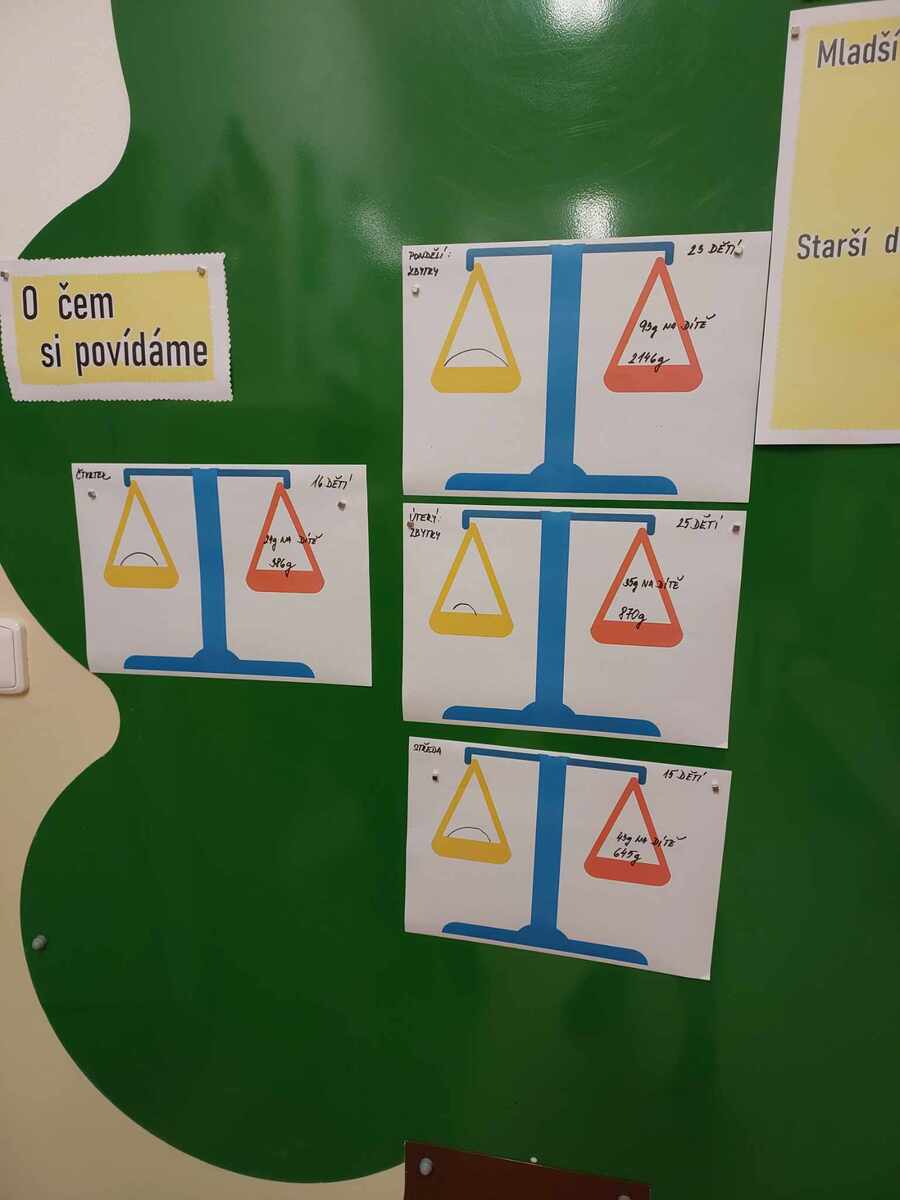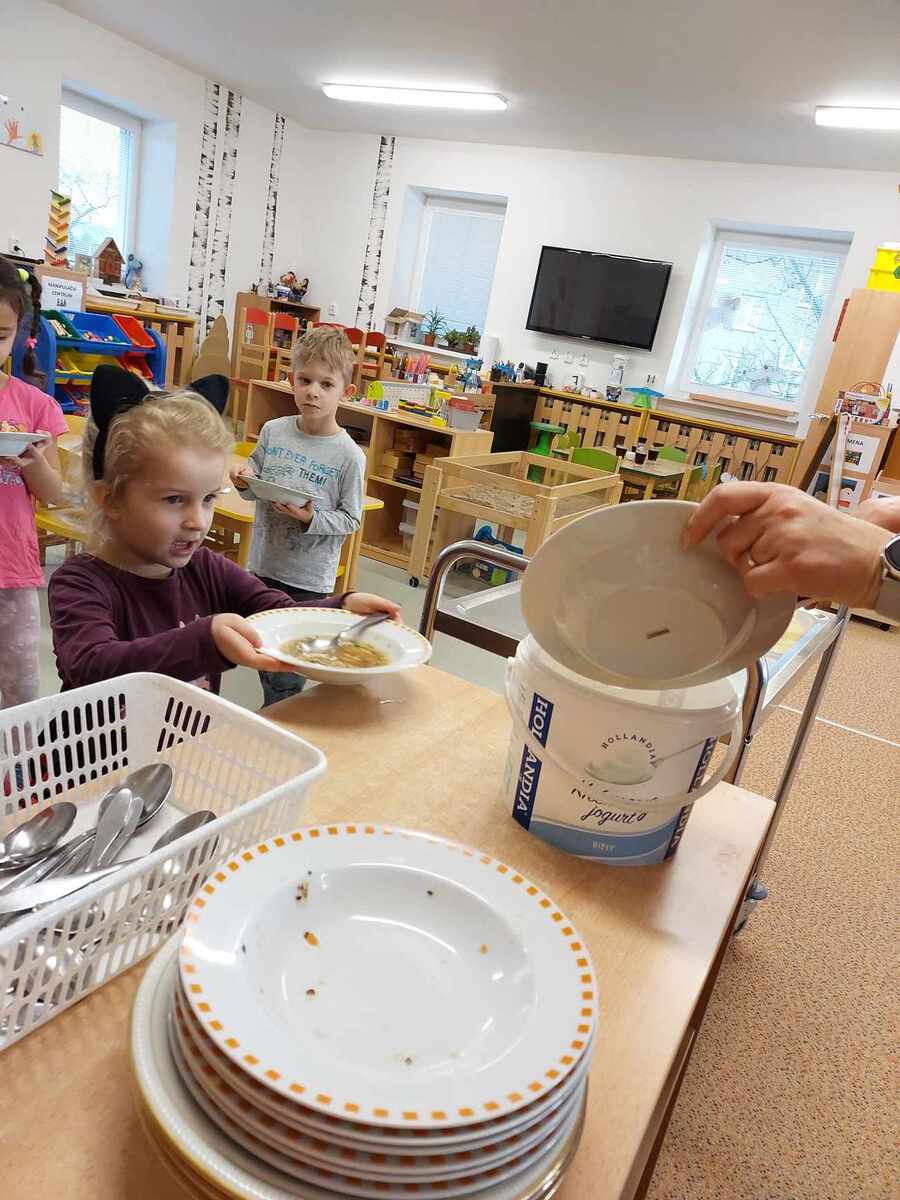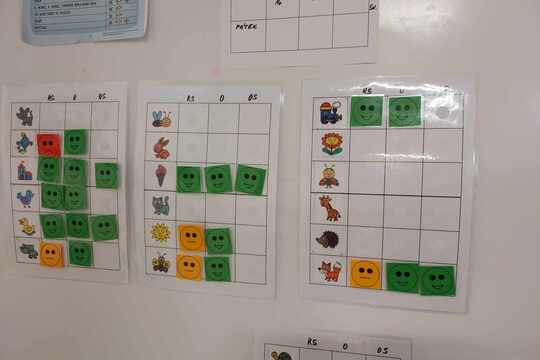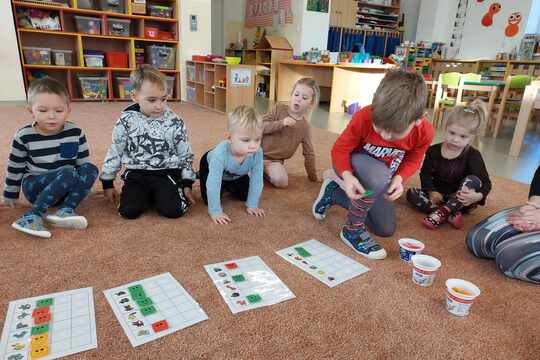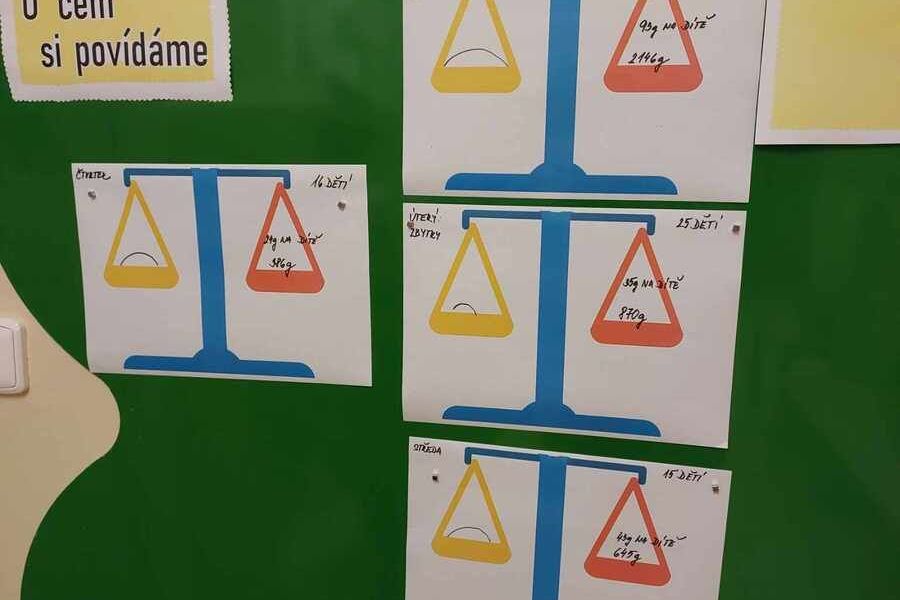
The problem
The aim of the project "We don't waste food" was to raise children's awareness of the value of food and the importance of its consumption. Children were encouraged to eat responsibly, learn the principles of a healthy lifestyle and how they can contribute to sustainability through their behaviour.
The solution we used
During the week of January, a project called "We don't waste food" took place in our kindergarten, the main aim of which was to encourage children to adopt a responsible approach to eating and minimise food waste.
The project was implemented in the form of experiential learning, which brought the importance of this topic closer to the children and encouraged their active involvement. Each day after lunch, leftover food was weighed by the cook and the quantity recorded. In the classrooms, evaluation charts were set up in which the children themselves stuck smiley faces after the meal as part of a three-point evaluation (called a traffic light): a green smiley face indicated that the food had been completely finished, an orange one indicated that it had been tasted and a red one indicated that the child had not eaten the food. The motivational component of the project was also a challenge between the classes. The class with the least food leftovers received a special smiley each day.
On Friday, the top eaters then had the opportunity to choose their snack for the following week. The children chose waffles with strawberry jam, and the waffles were made with whole wheat flour and the jam contained no added sugar.
Implementation
The project demonstrated that children can be effectively motivated to reduce food waste through experiential learning and playful educational activities. Involving children in assessments and competitions between classes had a positive impact on their eating behaviour. This project has shown that food waste prevention can be effectively promoted in early childhood and therefore similar educational activities will be continued in the future.
Evaluation
